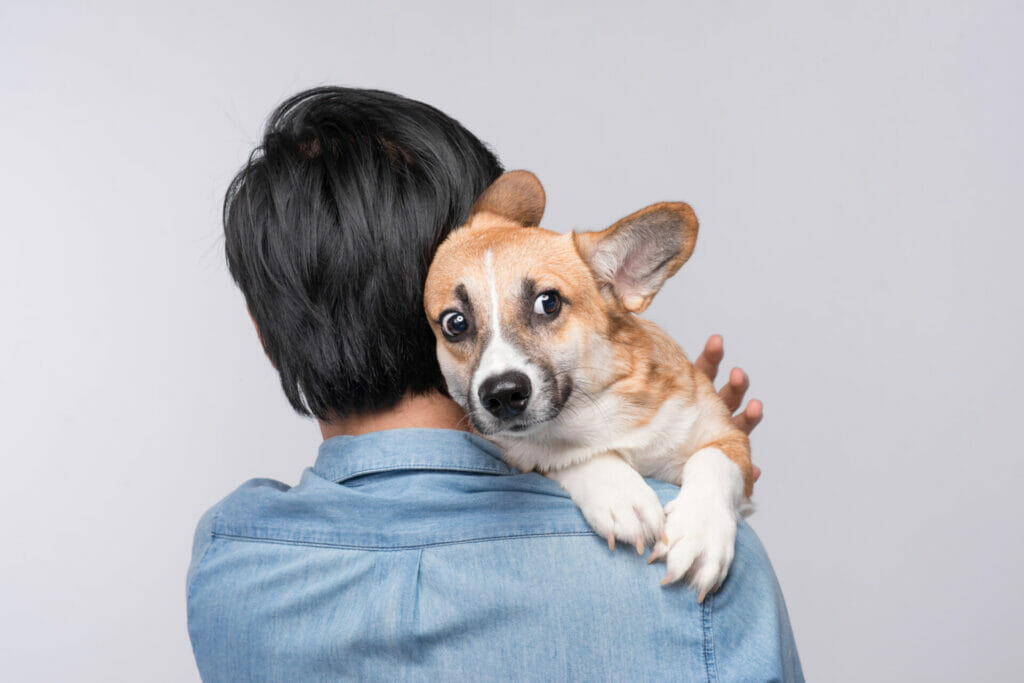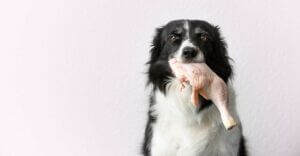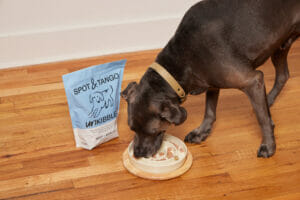As they grow, puppies go through various stages of physical and emotional development. One of the most challenging are a puppy’s fear periods. The second period often catches dog owners by surprise leaving them unprepared to deal with their adolescent puppy and their big feelings.
What is a fear period?
As puppies grow, they will experience fear periods. These are moments of development where puppies are more emotionally sensitive to sights, sounds, and experiences. During this time your puppy may seem afraid of things that they previously were unbothered by. Although it’s a natural part of development, these times can be stressful and overwhelming for dogs and for dog owners alike. People tend to be most familiar with the first period that puppies experience – often between the ages of 8 weeks to 11 weeks old. Then, puppies experience a fear period a few months later.
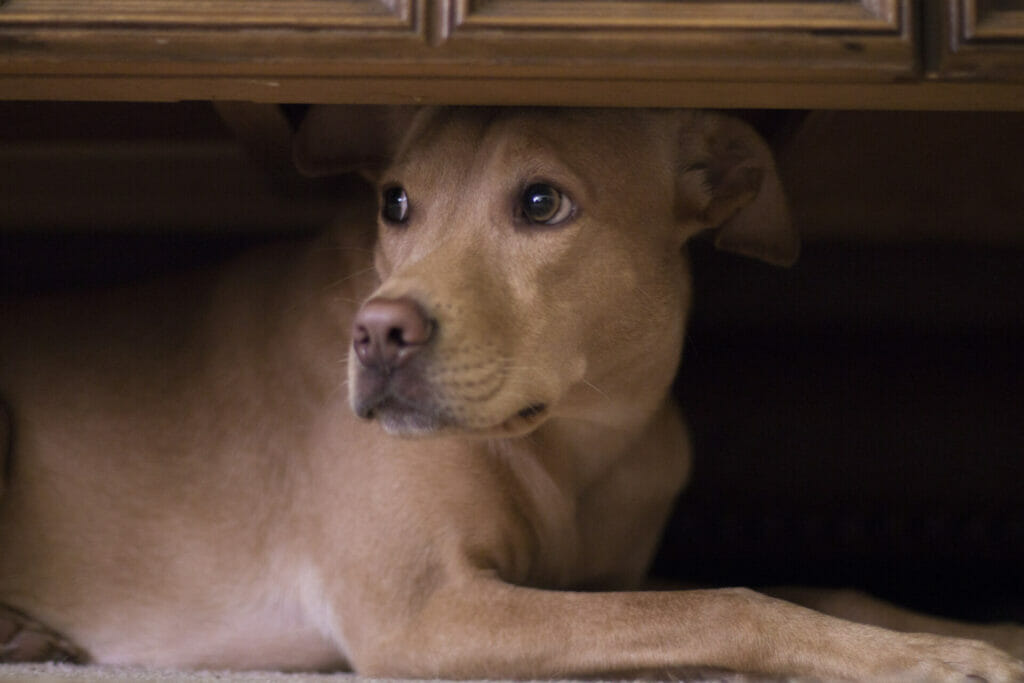
What does the second fear period mean?
The second period is the one that most often takes dog owners by surprise. In most dogs, this fear period happens when dogs are between 6 and 14 months old. This can be especially disorienting for puppy owners as by this point most puppies have settled into a routine and are doing well with training.
When the second period hits many aspects of a puppy’s behavior can shift. Smaller breed puppies tend to hit this second fear period earlier, closer to 6 months, and large and giant breed puppies may experience that period later. In this period, it may seem like your happy and confident puppy is now afraid, anxious, or wary of people, places, and experiences they previously were comfortable with.
How long should I expect my dog’s second fear period to last
Each puppy will be different, but in general, a puppy’s fear period will each last between two and three weeks. During this time your puppy is likely going to be more sensitive than they previously have been. During your puppy’s second fear period they are likely to be wary of new places, people, sounds, surfaces they might walk on, new experiences, or seem skittish when out on walks.
Symptoms of a second fear period
Signs to watch for that your puppy might be experiencing a fear period include:
- Becoming easily startled.
- Displaying uncomfortable and fearful body language.
- Increased barking at objects or people.
- Avoidance of objects, people, or experiences.
Waiting it out
During the second fear period, it might seem like everything your puppy learned has been forgotten, and the sweet and happy puppy you have been raising is now a fearful and uncomfortable adolescent. As stressful and scary as this can be for dog owners it’s important to try not to panic during this period. It’s overwhelming for your puppy to regress in their behavior, but fear periods are natural; this would normally be the time dogs would leave their mom and venture out alone into the wild. The best way to handle your puppy’s second fear period is to calmly wait it out while gently supporting your puppy.
You can’t reinforce fear
One of the common myths about dog training is that you shouldn’t comfort a fearful dog or puppy because you’ll “reinforce” the fear. This isn’t the case at all. If your puppy is stressed and overwhelmed it’s always okay to offer comfort and support. When your puppy is going through their second fear period, we want to help them feel safe and supported. Allow your puppy to move away from whoever or whatever they are finding stressful. Engaging your puppy in play can help your puppy to relax, reduce stress, and help your puppy to get back to a calmer state of mind while struggling in a period.
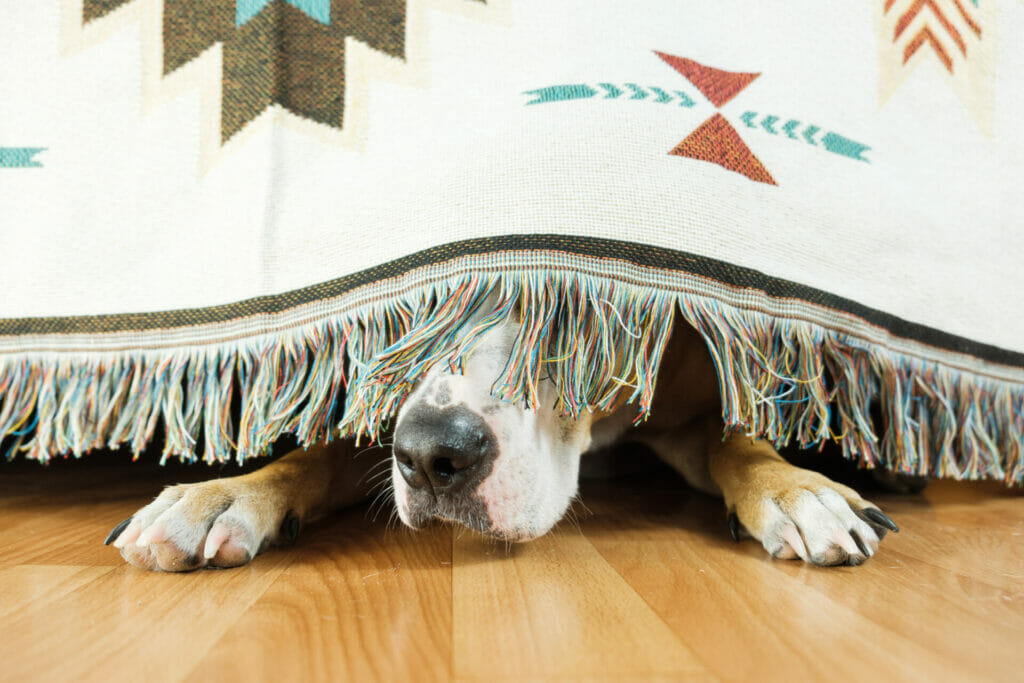
Avoid pressure during the second fear period:
We never want to punish our dogs or puppies for expressing fear or discomfort around a situation. This is true throughout the life of your dog, but especially during their second period. If your puppy is afraid of something, it’s important not to push your dog to get close to what they are afraid of. Instead, allow your puppy to get distance from what they are worried about. Then, stay at that distance where they are comfortable, and let your puppy dictate when and how close they get to the thing that has made them feel uncomfortable or frightened. By following your puppy’s lead you’ll avoid putting them into situations that are too stressful and limit the chances of a stressful occurrence during their fear period impacting your puppy’s temperament in the future.
Training during the second fear period:
While your puppy is experiencing fear periods try to keep their routine as normal as possible. Try to avoid any potentially stressful situations that could overwhelm your puppy. If a dog experiences stress or trauma during their fear period it can be harder for them to behaviorally recover, and these fears may imprint on your puppy’s brain and be something you’ll need to work through later in life. While your puppy is going through a period, be calm and supportive. Use lots of treats and toys while training and be patient with your puppy. Let your puppy explore things at their own pace, and then praise and reward your puppy while training.


